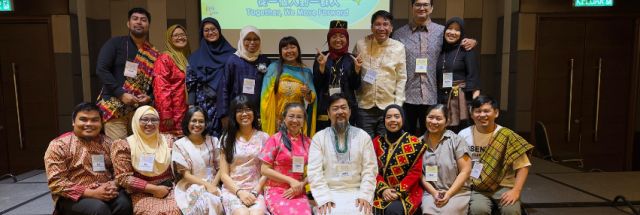The Most Painful Trial
Elderly parents fear "becoming a burden to their children"—and for good reason.
Children can, at best, empathize with their aging parents' suffering, but they cannot bear the pain on their behalf. Since no one can endure the pain in their place, the reversal of the natural order—where parents care for their children—inevitably brings hardship to all family members involved.
"Family bonds are predestined, but intimacy is not innate." Because a child's first human relationship is with their parents, caring for elderly, ailing parents is not only a difficult experience but also one beyond their full comprehension. A child will never grow older than their parents, making it impossible to truly grasp what it feels like to age and suffer from illness.
Aging is a long, gradual process. We see our parents growing old; we recognize the signs. However, illness and chronic conditions do not strike suddenly. They begin with symptoms— subtle signals—before developing into tangible sickness.
From early signs to full-blown symptoms, recognition requires human connection. This kind of awareness is indirect. In contrast, once illness takes hold, it can no longer be ignored— regardless of the state of the parent-child relationship. "Illness never sends a prior notice"— how true this is. In many ways, illness itself serves as a letter summoning children home, compelling them to see and acknowledge their ailing parents.
It is difficult for us to accept that "throughout life, from gain to loss, we have no real choice in the matter." Yet, we cannot deny this reality. When illness strikes, we repeatedly ask, "Why?"—questioning life itself. But we often forget that aging and sickness are universal lessons that everyone must learn. Instead of asking "why," we should be asking "what is happening" and "how it is unfolding."
When our parents become ill, it is an opportunity for us to learn—through them—about this inevitable stage of life. This lesson, though painful, is one that no one can escape. Because it is mandatory, we have no choice but to face it, no matter how reluctant we may be.
"Different physical conditions create misunderstandings between the caregiver and the patient." When an unexpected crisis occurs, children experience immense grief. This grief is often beyond words, leading to emotional outbursts: "Why must you torment us like this?" Over time, caregivers come to understand that the patient is still a person—one who deserves dignity. And when that patient is a loved one, this realization becomes even more profound.
For a man—especially a husband—wearing a diaper may be humiliating. He may tolerate it in front of his wife, but in front of his children, it feels like a complete loss of dignity. Children often fail to understand this, reacting with frustration because they assume their father still has a choice. A mother, however, sees it differently. She understands. She knows her husband. She cannot bear to witness his dignity being stripped away, piece by piece, in front of their children.
Father-son relationships, mother-daughter bonds, and all parent-child connections are intricately linked. A father’s relationship with his son determines whether the son grows into a capable man, while a mother’s relationship with her daughter shapes the woman she will become.
Many people fail to recognize this until it is too late. "A father’s first lesson to his son often begins with illness." And though the cost of this lesson is unbearably high, "if something is rotten, it must be removed before healing can begin." Relationships, especially family ties, cannot heal if they are tainted by unresolved pain or shame. If these harmful elements are not addressed, the relationship will continue to decay.
It is never too late to learn and grow. And I firmly believe this: it is better to rebuild a broken relationship late than never to rebuild it at all. Many assume that it is only natural for parents to care for their children. Yet, what they fail to realize is that parenting is an overwhelming responsibility—one that extends far beyond childhood. From pregnancy to birth, from infancy to adulthood, parents worry about their children’s struggles, education, careers, marriages, and every aspect of their lives. Caring for a child is a lifelong commitment.
or a child, taking care of an aging, ailing parent is truly one of the most painful trials in life. But it is also the last lesson our parents leave us—the final test that completes our understanding of life itself.
Writer: Nandor Lim

